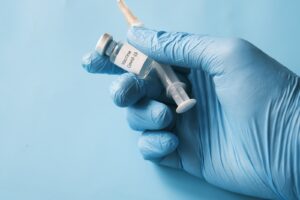 Welcome to our deep dive into the world of treating drug overdoses. Whether you're here out of curiosity, for educational purposes, or to equip yourself with knowledge for unforeseen circumstances, this guide aims to inform you about the critical steps and considerations in managing drug overdoses.
Welcome to our deep dive into the world of treating drug overdoses. Whether you're here out of curiosity, for educational purposes, or to equip yourself with knowledge for unforeseen circumstances, this guide aims to inform you about the critical steps and considerations in managing drug overdoses.
We'll cover everything from recognizing the signs to the immediate actions you should take, drawing on expert advice and guidelines. Get ready to learn about the important role of the poison control center, interpreting arterial blood gas values, and more. Let's embark on this life-saving journey together, armed with understanding and readiness.
The First Step in Suspected Drug Overdose Situations
When faced with a client showing signs of a suspected overdose, quick and decisive action is crucial. The very first thing to do? Assess the person's airway, breathing, and circulation – the ABCs of first aid. This rapid assessment helps determine the immediate needs and sets the stage for all the subsequent steps. Calling for emergency medical services should never be delayed, as time is of the essence in these cases. While waiting for professional help, try to gather as much information as possible about the drug involved, the quantity taken, and the time of ingestion. This information can be lifesaving and will greatly assist healthcare providers in delivering the most appropriate treatment. Remember, in overdose situations, every second counts.
Decoding Arterial Blood Gas Values in Overdose Cases
 Understanding arterial blood gas (ABG) values is key in managing a drug overdose, particularly when signs point to respiratory acidosis. ABG analysis reveals crucial information about the patient’s oxygenation, carbon dioxide levels, and blood pH. In overdose scenarios, respiratory acidosis often signifies that the patient's body is retaining too much carbon dioxide due to depressed breathing, a common effect of certain drugs. This abnormality alerts medical professionals to the need for immediate intervention to support breathing and correct the acid-base imbalance. Recognizing these values early on can guide the emergency response team in their decision-making process, ensuring they provide precise treatments such as ventilation support or specific antidotes to counteract the overdose effects. Understanding these gas values is a foundational aspect of critical care in overdose cases.
Understanding arterial blood gas (ABG) values is key in managing a drug overdose, particularly when signs point to respiratory acidosis. ABG analysis reveals crucial information about the patient’s oxygenation, carbon dioxide levels, and blood pH. In overdose scenarios, respiratory acidosis often signifies that the patient's body is retaining too much carbon dioxide due to depressed breathing, a common effect of certain drugs. This abnormality alerts medical professionals to the need for immediate intervention to support breathing and correct the acid-base imbalance. Recognizing these values early on can guide the emergency response team in their decision-making process, ensuring they provide precise treatments such as ventilation support or specific antidotes to counteract the overdose effects. Understanding these gas values is a foundational aspect of critical care in overdose cases.
Navigating the Role of Poison Control Centers
In the crucial moments following a drug overdose, reaching out to a poison control center can make a significant difference in the outcome. These centers serve as a goldmine of information regarding the management and treatment of overdoses, offering immediate, expert advice on how to proceed based on the specific substance involved. When you contact a poison control center, be ready to provide details about the drug, quantity ingested, and the time frame of the overdose. This information allows the specialists to offer tailored advice on necessary interventions before medical help arrives. Importantly, these centers can also guide healthcare professionals in choosing the most effective treatment protocols, ensuring a coordinated and informed response to the overdose crisis. Their input is invaluable for both emergency responders and individuals seeking to navigate the aftermath of an overdose.
Understanding the Deliberate Administration of Drug Overdoses
The concept of a deliberate administration of a drug overdose, whether for clinical or illicit purposes, calls for a deep understanding of its implications on health and legalities. In a medical setting, certain treatments might involve controlled overdoses under strict supervision, such as in the case of high-dose chemotherapy. However, outside of these controlled environments, the deliberate overdose poses significant risks and ethical concerns. Recognizing the signs of an intentional overdose is vital for providing the correct immediate care and support. Healthcare professionals must tread carefully, balancing the immediate clinical needs of the patient while considering the underlying reasons for the overdose. It's a complex scenario that requires sensitivity, ethical consideration, and a comprehensive approach to both physical and mental health care.
Practical Guidelines for Responding to Drug Overdose Emergencies
 In responding to drug overdose emergencies, having a clear, practical action plan is critical. First, ensure the safety of both the responder and the victim to prevent any additional harm. Immediately call for emergency medical services, as professional assessment and intervention are crucial. Next, try to identify the substance involved, as this information is vital for emergency responders and poison control centers to provide specific guidance. If the victim is unconscious but breathing, position them on their side in the recovery position to maintain an open airway and prevent aspiration. Do not attempt to induce vomiting or administer any substances unless specifically instructed by medical professionals. Lastly, provide reassurance and support to the victim while waiting for help, as emotional support is an important aspect of emergency care.
In responding to drug overdose emergencies, having a clear, practical action plan is critical. First, ensure the safety of both the responder and the victim to prevent any additional harm. Immediately call for emergency medical services, as professional assessment and intervention are crucial. Next, try to identify the substance involved, as this information is vital for emergency responders and poison control centers to provide specific guidance. If the victim is unconscious but breathing, position them on their side in the recovery position to maintain an open airway and prevent aspiration. Do not attempt to induce vomiting or administer any substances unless specifically instructed by medical professionals. Lastly, provide reassurance and support to the victim while waiting for help, as emotional support is an important aspect of emergency care.
Lifesaving Measures: From First Aid to Professional Care
Lifesaving measures in the context of a drug overdose transition seamlessly from initial first aid provided at the scene to comprehensive professional care received upon arrival at a medical facility. Immediate first aid focuses on maintaining vital functions: ensuring an open airway, supporting breathing, and monitoring circulation. These prompt actions set the groundwork for the advanced interventions that healthcare professionals will undertake. Upon arrival, medical teams will employ a range of strategies, from administering antidotes and performing advanced respiratory support to monitoring and correcting acid-base imbalances. The seamless handover from public intervention to professional treatment underscores the importance of a coordinated approach in managing drug overdose cases. It highlights the integral role that immediate, informed first aid plays in enhancing the efficacy of subsequent professional medical interventions.
